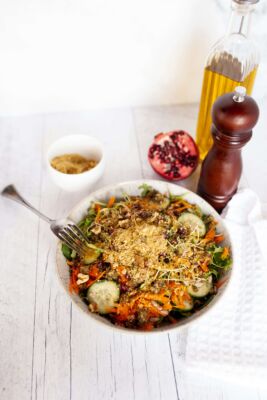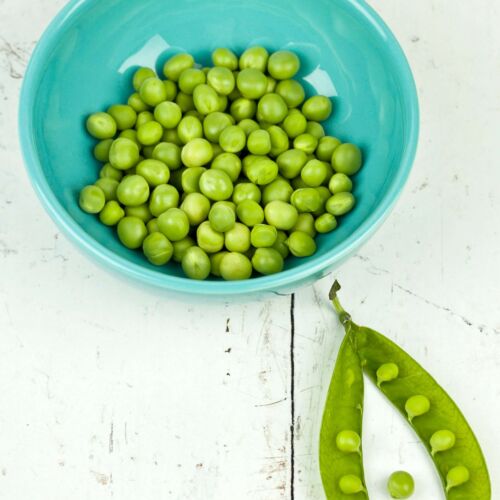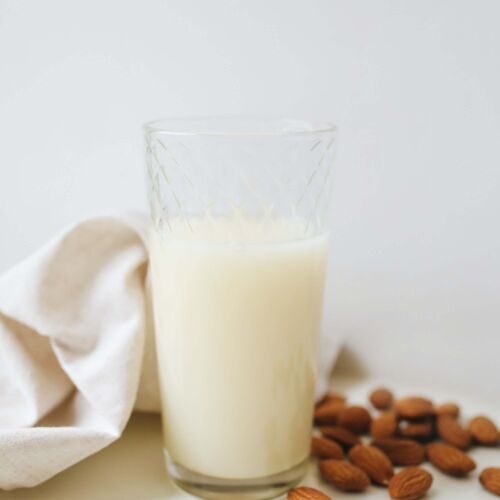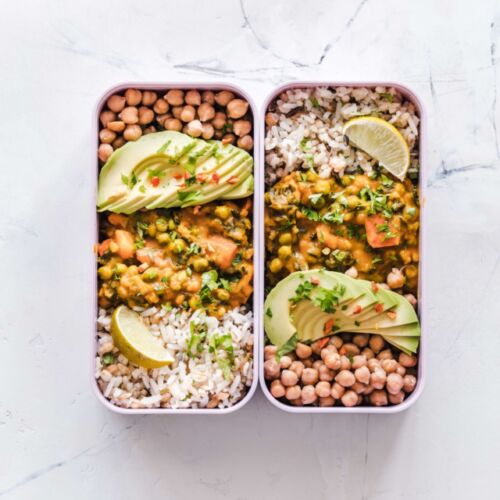Plant-Based Diets for Athletes and Active Adults
by Alyssa Leib, RD

Have you considered eating less meat or giving it up for good? If so, you’re not alone! Interest in plant-based diets has skyrocketed in recent years, especially among athletes. There are many reasons someone would adopt a plant-based diet, such as health, environmental or ethical reasons. Many athletes also believe there is a performance benefit from eating more plants. Whatever the reason, if you are plant-based or plant-curious, you have unique nutritional needs to consider. Read on to learn more about the different types of plant-based diets and what to look out for when planning your diet.
First, when I say plant-based diet, what do I mean? The reality is, the term “plant-based” can hold different meanings depending on who you ask. Here are some examples¹:
- Pescatarian: consumes fish but not chicken or meat
- Lacto-ovo vegetarian: consumes dairy and eggs but not fish, chicken, or meat
- Lacto vegetarian: consumes dairy only
- Ovo vegetarian: consumes eggs only
- Vegan: excludes all animal products, including eggs and dairy, as well as honey
Note that veganism is an ethical philosophy that extends beyond diet; vegans aim to reduce exploitation of animals and animal suffering and may also avoid things like leather or down.
When it comes to athletes, there are a lot of misconceptions about plant-based diets. Here are some of the most common ones that I hear:
Athletes can’t get enough protein on a plant-based diet¹:
Athletes tend to have higher protein needs than the general population. We commonly think of foods like meat, dairy products, and eggs as protein foods – but the reality is, most plant foods contain some amount of protein… and some contain quite a bit of it! The protein content of tofu is comparable to that of chicken, per calorie. Plant-based proteins are less bioavailable than animal proteins, meaning the body absorbs and utilizes them less efficiently. This can be corrected for by increasing protein intake by about 20%.
Plant-based diets are too high in carbohydrate¹:
It’s true that vegetarians and vegans tend to eat diets higher in carbohydrates than omnivores. However, carbohydrate needs are elevated in athletes – particularly endurance athletes, who may need as many as 10-12 grams of carbohydrate per kilogram of body weight daily². Carbs are the muscles’ preferred source of energy. A diet high in carbs is not a bad thing for athletes.
Athletes can’t eat enough calories on a plant-based diet:
Plant-based diets tend to be higher in fiber than omnivorous diets, which can be very filling. Further, because plant foods are often less calorie-dense than animal foods, a higher volume of food may be needed to meet calorie needs. Because of this, some athletes may find it challenging to take in enough calories to support training and recovery. If this resonates with you, consider scheduling an appointment with a sports dietitian who can help you come up with some strategies to make eating feel easier. It may be as simple as eating smaller, more frequent meals, or choosing refined over whole grains.
Plant-based diets are not sufficient to meet athletes’ nutritional needs:
Hopefully by now, you realize that this simply is not true. With some intentionality and careful planning, there is no reason an athlete can’t meet their needs without animal products.
With that said, there are several important nutritional considerations for plant-based athletes:
Protein: As noted above, you can get enough protein on a plant-based diet. The reality is, research shows that most vegetarians and vegans do eat less protein than omnivores do¹. This underscores the importance of intentionality when planning a plant-based diet. Of particular importance for athletes is the amino acid leucine. Leucine is a branch-chain amino acid (BCAA) that plays an important role in muscle building. Recommendations typically call for about 3-5 g of leucine after exercise³. The best sources of leucine are animal-based, with many popular meats containing close to 2 g of leucine in a 3 oz serving. Beans and lentils, in contrast, contain only 0.5 g in the same sized serving (about ½ cup)4. Most plant-based protein powders contain adequate leucine to stimulate muscle protein synthesis. These supplements can be incorporated post-workout if leucine is a concern.
Iron: Most plant foods are low in iron. Further, plants contain non-heme iron, a form of iron that is less bioavailable than the heme iron found in animals. This means that people following a plant-based diet need to eat a lot more iron to account for poor absorption. Pair iron foods (like beans, lentils, and leafy greens) with a source of vitamin C (like citrus fruits, bell peppers, or strawberries) to enhance absorption. Be sure to get your iron levels checked at least annually to be sure you don’t have a deficiency.
Calcium: Calcium is primarily found in dairy products, so anyone who excludes these foods – or doesn’t eat a lot of them – should find an alternative source. Many plant milks and some tofus are fortified with calcium. A supplement may be necessary.
Vitamin D: Vitamin D deficiency is common, especially in people following a plant-based diet. Although we can make some vitamin D from sun exposure, most people live at latitudes without direct enough UV rays to do this efficiently. Choose plant milks and orange juice that has been fortified with vitamin D and consider a supplement if your levels are low.
Vitamin B12: This vitamin is not found naturally in any plant foods. Most nutritional yeast is fortified with vitamin B12 – but it isn’t always, so check the nutrition label to be sure. If you are vegan, you will almost definitely need a supplement. Vegetarians may be able to get enough from eggs or dairy products.
Omega-3 fatty acids: These “healthy fats” are found most commonly in fatty fish like salmon and play an important role in our heart and brain health and nerve function. The good news is, fish are so high in these fats because they eat algae. If you don’t want to eat algae, choose an algae-based omega-3 supplement instead.
If you are an athlete who currently follows or are interested in starting a plant-based diet and are feeling overwhelmed with making sure you are meeting your needs, don’t hesitate to reach out for support! A sports dietitian can help you come up with strategies to hit your goals that work for you. In most cases, you don’t need meat to succeed in your sport or achieve peak health.
References:
- West S, Monteyne AJ, van der Heijden I, Stephens FB, Wall BT. Nutritional considerations for the vegan athlete. Advances in Nutrition. 2023;14(4):774-795.
- Thomas DT, Erdman KA, Burke LM. American College of Sports Medicine Joint Position Statement. Nutrition and Athletic Performance. Med Sci Sports Exerc. 2016;48:543-568.
- Jager R, Kerksick CM, Campbell BI, et al. International Society of Sports Nutrition position stand: protein and exercise. J Int Soc Sports Nutr. 2017;14:20.
- Rondanelli M, Nichetti M, Peroni G, et al. Where to find leucine in food and how to feed elderly with sarcopenia in order to counteract loss of muscle mass: practical advice. Front Nutr. 2021;7.
Alyssa Leib, MS, RD is the owner of Peak to Peak Nutrition, a virtual private practice based out of Golden, CO. She specializes in working with endurance and mountain athletes of all levels to help them perform and feel their best. Alyssa believes that mental health is just as important as physical health and supports every athlete she works with in building and nurturing a positive relationship with food and with their bodies.
Images: From Unsplash and Pexels
The Site is not intended to be a substitute for professional advice. Under no circumstances will we be liable for any loss or damage caused by your reliance on information obtained through the Site. You are responsible for evaluating the accuracy, completeness, or usefulness of any information, opinion, advice, or other content available through the Site. Please seek the advice of professionals, as appropriate, regarding the evaluation of any specific information, opinion, advice, or other content. Never disregard professional advice, including medical advice, or delay in seeking it because of something you have read on this Site.



